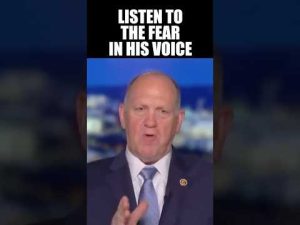On a recent episode of the Actual Friends podcast, Dave Rubin and his co-hosts dug into a story every patriot should care about: why Tucker Carlson has shifted into ever-more provocative territory, inviting guests who make establishment conservatives uncomfortable. The conversation — which included Sage Steele, Jillian Michaels, Russell Brand and Dr. Drew — focused squarely on Carlson’s decision to platform figures like Nick Fuentes and Darryl Cooper and asked whether this is brave truth-seeking or dangerous provocation.
Tucker’s interviews have not been subtle exercises in “both-sides” journalism; they have been full-throated, long-form conversations that give fringe figures a huge audience. His sit-down with Darryl Cooper, who has pushed revisionist takes on World War II and the Holocaust, and his more recent, widely watched interview with Nick Fuentes have ignited predictable outrage across the political class. These episodes have become lightning rods, forcing a reckoning about free speech, taste, and where the right draws its lines.
The conservative world responded in the only way it knows how: by tearing itself apart. Prominent voices like Ben Shapiro publicly condemned Carlson for “normalizing” extremists, while other establishment figures scrambled to defend the old guard and distance themselves from the blowback. That infighting isn’t merely about tactics; it exposes a deeper crisis of leadership on the right — who decides which ideas are within the pale, and who gets to police the conservative movement.
Even institutions meant to anchor conservatism have been shaken. The Heritage Foundation’s initial defense of Carlson drew staff revolts, resignations, and public rebukes, underscoring that the chattering class’s instincts are often more about optics than principle. For grassroots conservatives watching from Main Street, it looks less like a principled defense of free expression and more like elites scrambling to manage perception and preserve donor relationships.
Still, it’s worth saying plainly: Carlson’s critics often sound indistinguishable from the left’s cancel culture when they demand gatekeeping and purity tests. There is a legitimate conservative case for hearing uncomfortable arguments rather than silencing them, and some defenders have rightly warned against mirror-imaging the methods of our opponents. That said, conservatives should also demand intellectual rigor and real pushback when guests traffic in falsehoods or poisonous ideas — courage without discernment is reckless.
Conservative thinkers are split even among those who share many policy goals with Carlson; voices like Victor Davis Hanson have criticized his failure to challenge extremist claims, showing that principled critique can come from within our ranks. This debate is healthy if it leads to clear standards: defend free speech, refuse to ally with hate, and hold our own accountable without reflexively running to the nearest microphone to denounce anyone who crosses a subjective line. The alternative is a factional civil war that helps no one and hands victory to the left.
At the end of the day, hardworking Americans want a conservative movement that fights for them — not one that spends its energy policing personalities or gaslighting its base. If Carlson’s methods make you uneasy, debate him, discredit the dangerous ideas convincingly, and present a better, truer conservative vision. But if we surrender the marketplace of ideas to the professional outrage industry, we lose the one weapon that actually rebuilt conservative thought over the last decade: fearless discussion and unapologetic patriotism.







